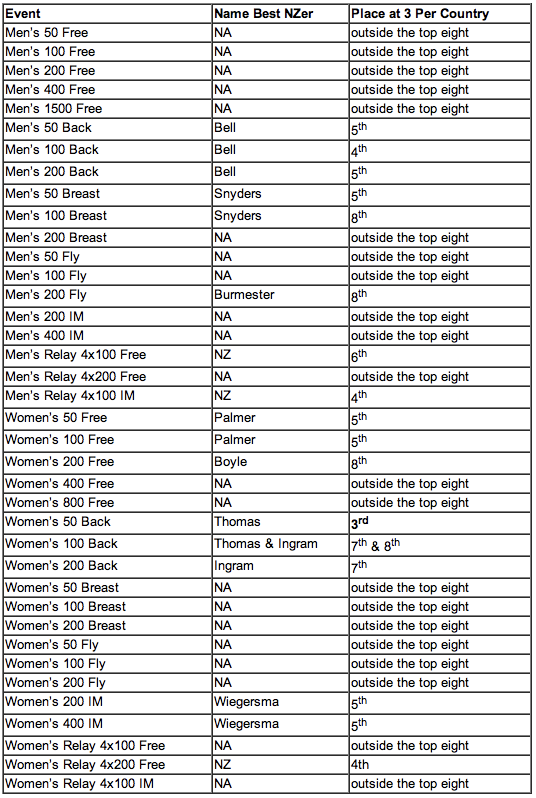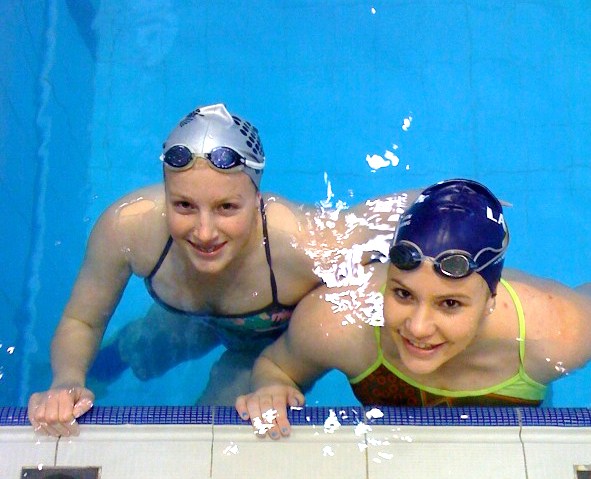By David
I must begin by apologizing to any American readers. This post is going to be all about the Commonwealth Games. In swimming terms the Commonwealth Games is not the world’s best meet. Certainly the Pan Pacific Games being held in the US shortly will see some far better swimming. However New Zealand is besotted with the Commonwealth Games. Sport’s funding decisions, pages of news print and hours of broadcast time are spent predicting results and analyzing performances.
So, how is New Zealand going to get on in the swimming pool at this year’s Games in New Delhi, India? It is an important Commonwealth Games for swimming. For years the National Coach has been promising us an international swimming nirvana. This time she must deliver. Whatever the result, she owns it. Four years ago in Melbourne Australia, New Zealand won six medals. The table below shows the details of these results. If we don’t do better than that in New Delhi, the past four years of effort and money will have been wasted. If we don’t do better than that I’m told SPARC are not going to be very happy and will probably cut the state financial lifeline that keeps swimming afloat – if you’ll excuse the pun.

One indication of how New Zealand might fare in New Delhi is the current Commonwealth rankings. The table below shows the name and place of the best New Zealander in each event, based on three swimmers per Commonwealth country. If the best New Zealander is outside the Commonwealth’s top eight the table just records this as “NA” and “outside the top eight”.

Fortunately medals at Olympic and Commonwealth Games are not decided by world rankings. If they were Peter Snell would never have won the Olympic 800 track title. So while the ranking data suggests New Zealand will only win one bronze medal in the women’s 50 backstroke it is entirely possible we could do better than that. Sadly it is equally possible we could do worse. Australia, Canada and South Africa are as strong as ever but in the past four years swimming in the UK has improved dramatically. The efforts of Swettenham and the injection of a truck load of lottery money have borne fruit. And in the Commonwealth Games an improvement in the UK is a quadruple problem for New Zealand. Good UK swimmers can represent Scotland, England, Ireland or Wales.
I think New Zealand will do better than one bronze medal. In particular I rate Melissa Ingram as a very good athlete. In World Cup events a year ago she was superb; competing against and beating the world’s best. On that tour she showed the character that it takes to win medals at an international Games. I also like Bell; he’s a bit of a rebel and that often helps win races.
Just to do as well as New Zealand did four years ago is not going to be easy. Winning the eight or nine medals required to demonstrate progress and justify the financial resources provided to those responsible for the sport’s elite performance is unlikely. For years New Zealand has been told swimming is building for the future. Well, the future is now.



